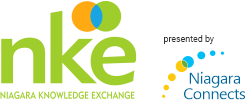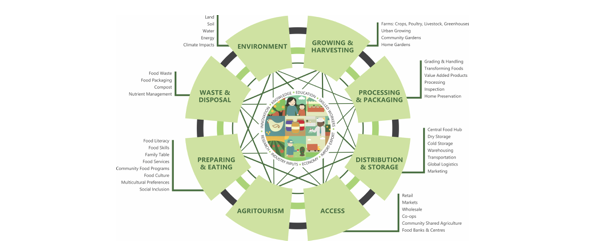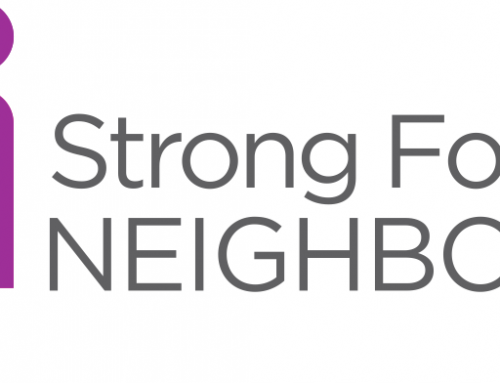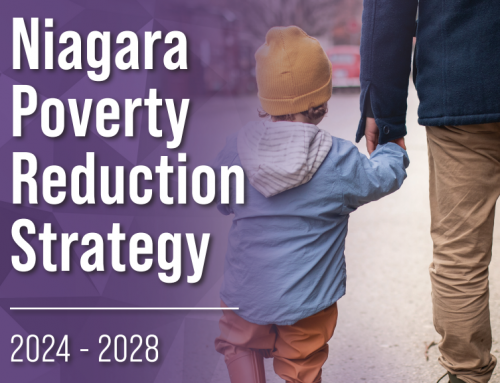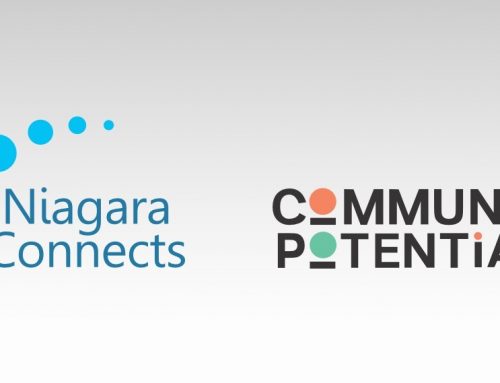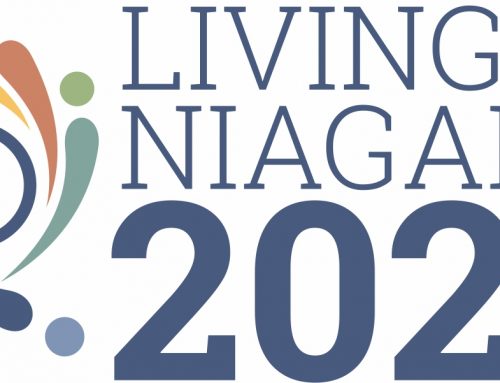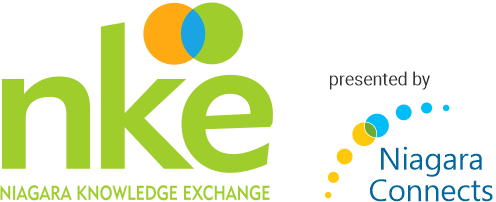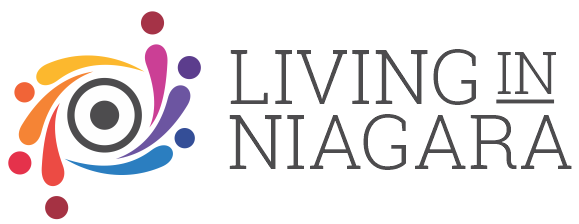People working in Niagara’s food continuum are developing shared understanding and common language to describe how a healthy, secure, sustainable food landscape contributes to Niagara’s social, political and economic vitality. Food Systems in Niagara is a topic that represents the cycles and interconnections of growing, distributing, eating and recycling of food.
In 2015 and 2016, Niagara Connects engaged over 100 people in the Food Systems conversation. These individuals work in: growing, preparation, consumption, access, processing, marketing, distribution, agritourism, education, nutrition, health, research, business, economic development, employment, waste/disposal, environmental sustainability, policy and government.
Eight (8) Food Systems in Niagara Building Blocks were gathered and reviewed. These include a 2015 network map that illustrates connections and lines of communication among 210 people from 143 organizations in the food continuum in Niagara and beyond. Eleven (11) inter-connected food systems categories were identified: Agriculture; Land Use Planning; Local Food; Economic Development; Food Distribution; Retail and Food Outlets; Food Security and Poverty Reduction; Health; Child and School; Education and Research; Garden and Food Skills.
A Food Systems in Niagara Map was co-created, to show the inter-connected, complex web of assets that make up our food system. Six (6) Suggested Action Steps to advance this work for Niagara were identified. The full report is available here.
Opportunities and suggested next steps include:
- Take a Collective Impact approach to diverse food systems players sharing relevant, reliable data as a means to understand internal and external factors affecting Niagara’s food continuum, and make connections that spark innovations.
- Convene a Reference Group of leaders that looks at local, provincial, national and international food systems, to identify components, interplay and contributing factors that benefit Niagara.
- Better understand where food systems work in Niagara fits into, and can benefit from broader related work in the Golden Horseshoe, Ontario, Canada and beyond.
- Explore food literacy and how it relates to Niagara health outcomes and personal and community economic prosperity. Examine how food literacy (and food skills) relate to people’s broader levels of literacy, living conditions, life experiences, and access to food and facilities.
- Gain an understanding of vulnerabilities of Niagara’s food systems to climate impacts such as quality, quantity, accessibility and governance of water; and extreme weather conditions and events.
- Explore food as a powerful force to draw people together to build up their capacity to experience security and prosperity. Relate this to the broader work of the #Rethink Niagara systems approach to investing in the people of Niagara.
If you see yourself and the work of your organization, network or business in this work, please join us for an April 20, 2017 shared learning and working session: Building a Food Systems Network for Niagara.
Mary Wiley
Executive Director
Niagara Connects
ed@niagaraconnects.ca
Background Information:
- Food Security in Niagara: Through the Lens of Environment and Climate Impacts (Blog – June 10 2016)
- The Impact of Food Insecurity in Niagara (Blog – May 2016)
- Describing How Food Systems Contribute to Niagara’s Vitality (Blog – March 2016)
- Examining Food Security in Niagara: Through the Lens of Environment and Climate Impacts (Full Report) (Resource – 2016)
- Niagara Food Systems: Who Is Doing What in Food Systems in Niagara and Beyond? (Resource – 2015)
- Exploring Food Systems in Niagara (Blog – September 2015)
- Niagara Region Agri-Food Strategy (Resource – 2015)
- Getting Curious About Niagara’s Food System (Resource – 2013)
- Golden Horseshoe Food & Farming Action Plan
